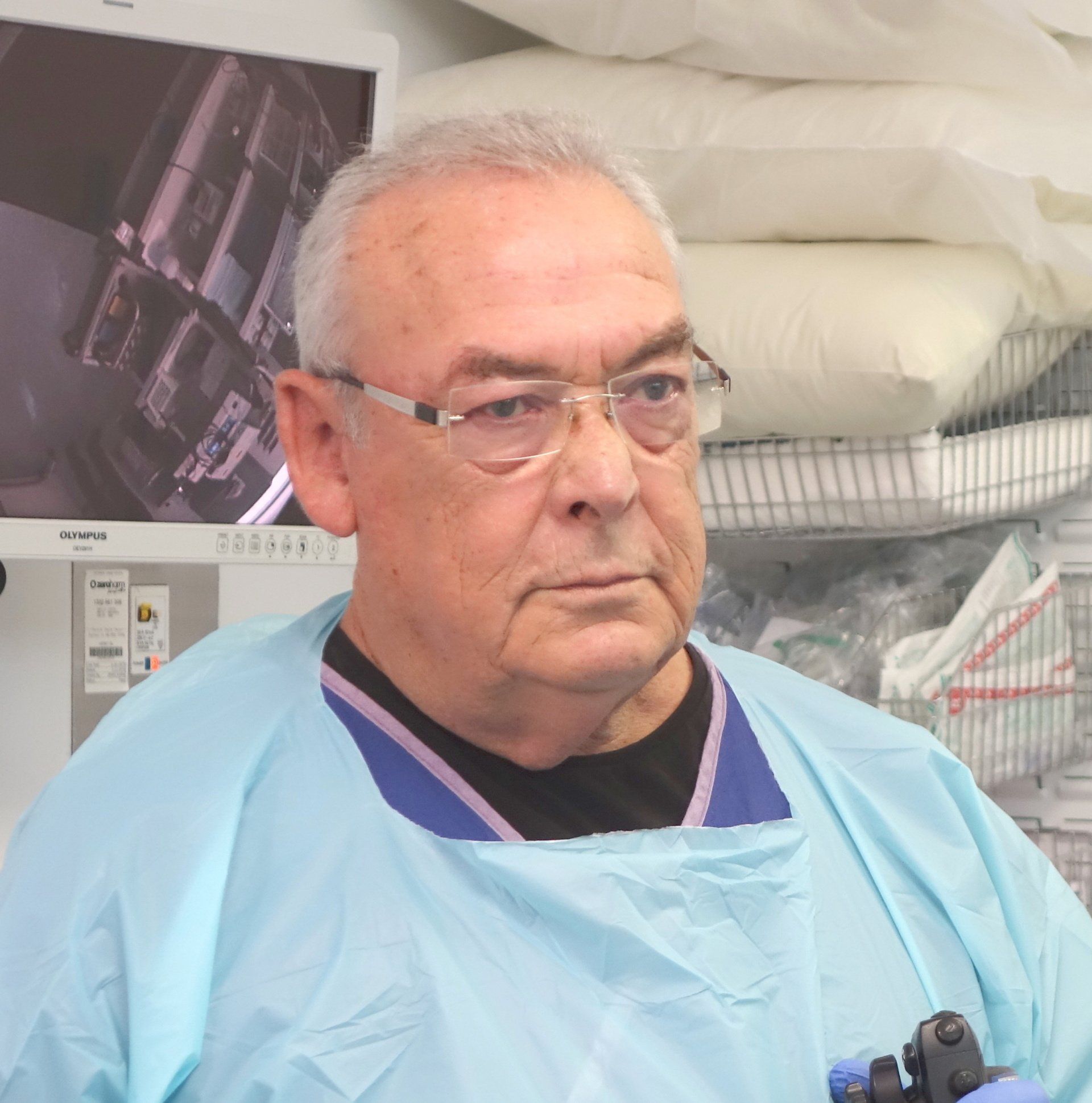Irritable Bowel Syndrome (IBS)
What is Irritable Bowel Syndrome?
Irritable bowel syndrome (IBS) is a disorder in which the normal rhythmic movement of your gut (bowel) is disturbed — this can lead to pain, bloating and excessive gas. You may have trouble going to the toilet (constipation) or have very loose and urgent bowel motions or stools (diarrhoea). It is very common — up to one in 5 Australians will have IBS symptoms at some time.
How do you get Irritable Bowel Syndrome?
No one knows exactly what causes irritable bowel syndrome, although stress can worsen the condition. It may be that your system can’t handle some foods, you don’t eat enough bulky food (fibre), or medicines you have taken, such as antibiotics or pain relievers, have disturbed your bowel function. You may have had food poisoning in the past, which can damage nerves in your gut and cause IBS symptoms to start or recur.
How is Irritable Bowel Syndrome Diagnosed?
Your doctor will usually diagnose irritable bowel syndrome from your symptoms if there is uncertainty about whether you have a more serious problem (e.g. if you have bleeding from the bowel, or considerable weight loss, which does not occur in IBS), your doctor may order other tests such as blood tests, a stool sample test, a sigmoidoscopy (to look at the lining of the last part of your bowel through a lighted tube), a colonoscopy (to look at the lining of your large intestine through a flexible, lighted tube) or a barium enema (to view the lining of your bowel on X-ray). If you have IBS, the results of all these tests are likely to be normal.
What Does Irritable Bowel Syndrome Feel Like?
If you have irritable bowel syndrome, you may experience the following symptoms:
- cramps and bloating in your lower abdomen.
- pain that may be worse on your left side and that usually feels better after you go to the toilet or pass wind;
- mucus in your stools;
- diarrhoea — having to go to the toilet too often or urgently and having very loose stools;
- Constipation — not going to the toilet enough, having small, hard stools that might be hard to push out; feeling that you have not finished; or
- You may have constipation sometimes, diarrhoea others, and then be fine for a while.
What makes Irritable Bowel Syndrome Better?
- Avoiding or learning how to handle stress: counselling; yoga; breathing exercises; meditation; and relaxation tapes and classes may help.
- Exercise — being more active helps digestion.
- Eating well, including consuming a lot of vegetables, fibre (cereals, brans and so on) and water. Add fibre to your diet slowly, as it may initially worsen things. Write down what you have been eating, doing and feeling when your gut gets upset to see if there is any pattern, and try to avoid possible IBS triggers in future.
What Makes Irritable Bowel Syndrome Worse?
- Some food and drinks. Everyone is different, but foods that may be a problem are fatty, sugary foods or sweeteners, ones that cause gas (e.g. carbonated drinks), and milk, chocolate, coffee, tea and alcohol.
- Eating too quickly or too much.
- Uncontrolled stress.
- Some women find that their IBS symptoms are worse when they have their period.
How Can my Doctor Help me with Irritable Bowel Syndrome?
If the above-mentioned measures do not control your IBS symptoms, your doctor may prescribe medicines to help with cramping, pain, diarrhoea or constipation. Be careful to use your IBS medicines only when your doctor suggests rather than using them continuously. While medicines can help relieve some of the symptoms of IBS, no cure is currently available. So modifying your lifestyle is the most important thing you can do.
IBS should not cause blood in the stools, fever, or symptoms that wake you up at night. If you have symptoms like these, vomiting, dizziness or fainting, you should see your doctor.
What Happens if Irritable Bowel Syndrome is Not Treated?
Irritable bowel syndrome can cause considerable discomfort and distress but is not life-threatening. Many people worry about cancer, but there is no link between IBS and bowel cancer. See your doctor if you are concerned.
PROGRAM TRIAL IS UNDERWAY WITH NEW MEDICATION to treat and manage IBS.
Patients with IBS are about to undertake a four-week program using a new medication that has been specifically formulated to treat and manage IBS.
Irritable Bowel Syndrome Treatment
The main treatment for irritable bowel syndrome (IBS) is making dietary and lifestyle modifications, including stress management and exercise. Avoiding fatty foods and caffeine may also help. Symptom-specific treatment for IBS includes products to alleviate diarrhoea, constipation and pain.
Diarrhoea-predominant Symptoms
Anti-diarrhoeal drugs such as loperamide (e.g. Imodium) and atropine plus diphenoxylate (e.g. Lomotil) are effective when taken ‘as-needed’ intermittently. Stool bulking with fibre (dietary or supplemental) may also be worthwhile. However, fibre should be introduced gradually to minimise the side effects of abdominal gas and bloating.
Constipation-predominant Symptoms
The first step in treating constipation-predominant symptoms should be through dietary changes, including daily consumption of high-fibre cereal, high-fibre bread and plenty of fresh fruits and vegetables. You should also increase your fluid intake and take regular exercise. If up to 30 grams of dietary fibre daily is ineffective, you should try supplemental fibre, such as psyllium.
If constipation is severe, increased fibre may be ineffective and worsen abdominal pain and bloating. In this case, you should take osmotic laxatives or, in more resistant cases, a stool softener such as docusate, with or without enemas. Stimulant laxatives such as senna should be avoided, as should prolonged use of any laxative.
Psyllium (e.g. Metamucil), frangula with sterculia (Normacol Plus), lactulose (e.g. Actilax), sorbitol (e.g. Sorbisol) and docusate (e.g. Coloxyl) are some of the over-the-counter products available to relieve constipation. However, people with irritable bowel syndrome tend to find the side effects of lactulose and sorbitol difficult to manage.
Pain-predominant Symptoms
Medicines that relieve abdominal cramping should be used ‘as needed’, rather than regularly. These medicines, such as after large meals, may also be used preventively when predicting pain.
Prescription and over-the-counter products that help alleviate the pain associated with IBS include peppermint oil (e.g. Mintec), hyoscine butylbromide (e.g. Buscopan), hyoscyamine (Donnatab) and mebeverine (e.g. Colofac, Colese).
Some antidepressant medicines, including tricyclic antidepressants and selective serotonin reuptake inhibitors (SSRIs), when taken in low doses, may be beneficial in reducing pain in people with IBS. In these situations, antidepressant medicines are being used for their pain-relieving properties rather than their effect on mood.
Dr Donald Walker
Write your caption hereMore
Dr Johan Van Den Bogaerde
Write your caption hereMore
Trusted for more than 25 Years
PANCREAS & BILIARY
Digestion Problems - Dyspepsia









